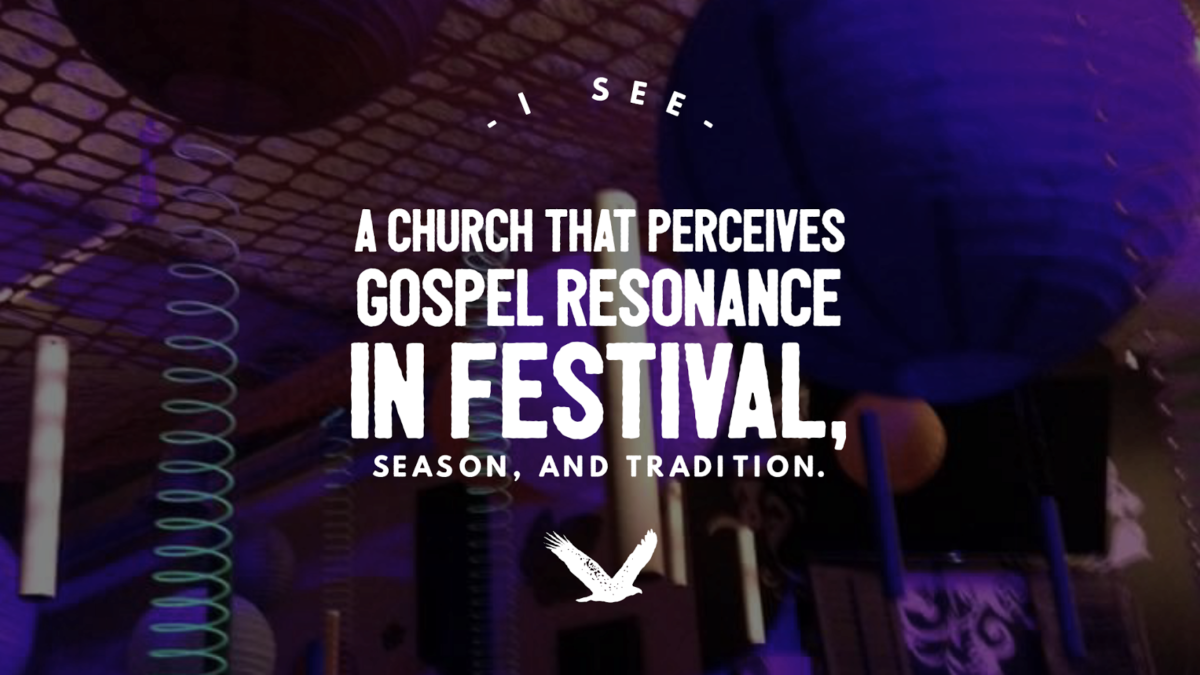Some of the holidays in our calendar do not—at first—appear spiritual, but once we recognize that God saturates every event into which he is welcomed, then everything becomes sanctified, sacralized, and holy. I love Halloween, for example, and don’t ascribe to the belief that it’s the devil’s holiday, nor do I hold that its pagan origins affect its present-day manifestation any more than those of Saturnalia affect Christmas. Halloween is just a fun dress-up holiday for kids during which time their parents get to spoil them with sugar.
One of my favorite events every year at Westwinds is our Halloween Party. We decorate the entire building with good ole fashioned spookiness and invite the community inside for buckets and buckets and buckets of sweets. There are dancers and musicians, costumed weirdos and energetic hucksters galore.
It’s amazing.
But it still startles me that the church at large has such an issue with Halloween. Especially among kids’ ministries. If you’re thinking like an evangelist, then the earliest process of your cultural exegesis has to be anthropological. You’ve gotta ask: What do children love? Where do children go? When are the optimal times to get droves of children together with their families?
There is no better answer to any of these questions than Halloween.
The next step is to consider: Is there any gospel resonance in this occasion? Any way to bring good news without feeling contrived? Are there any felt needs or points of overlap which might create space for spiritual conversation?
Again, consider that Halloween is one of the few family- centric events on the calendar and one of even fewer child- centric events; that Halloween deals with community, family, imagination, and play; that Halloween also raises issues about safety, fear, and protection.
Which part of this doesn’t sound like ripe gospel opportunity?
Adapted from Then. Now. Next.: A Biblical vision of the church, the kingdom, and the future.
fossores
Related posts
Categories
Category Cloud
Tag Cloud
Recent Posts
- Victors and Victims November 6, 2018
- 3 Hacks for Happiness October 29, 2018
- Hope Against Death September 20, 2018
- The Shape Of The Cross September 19, 2018


